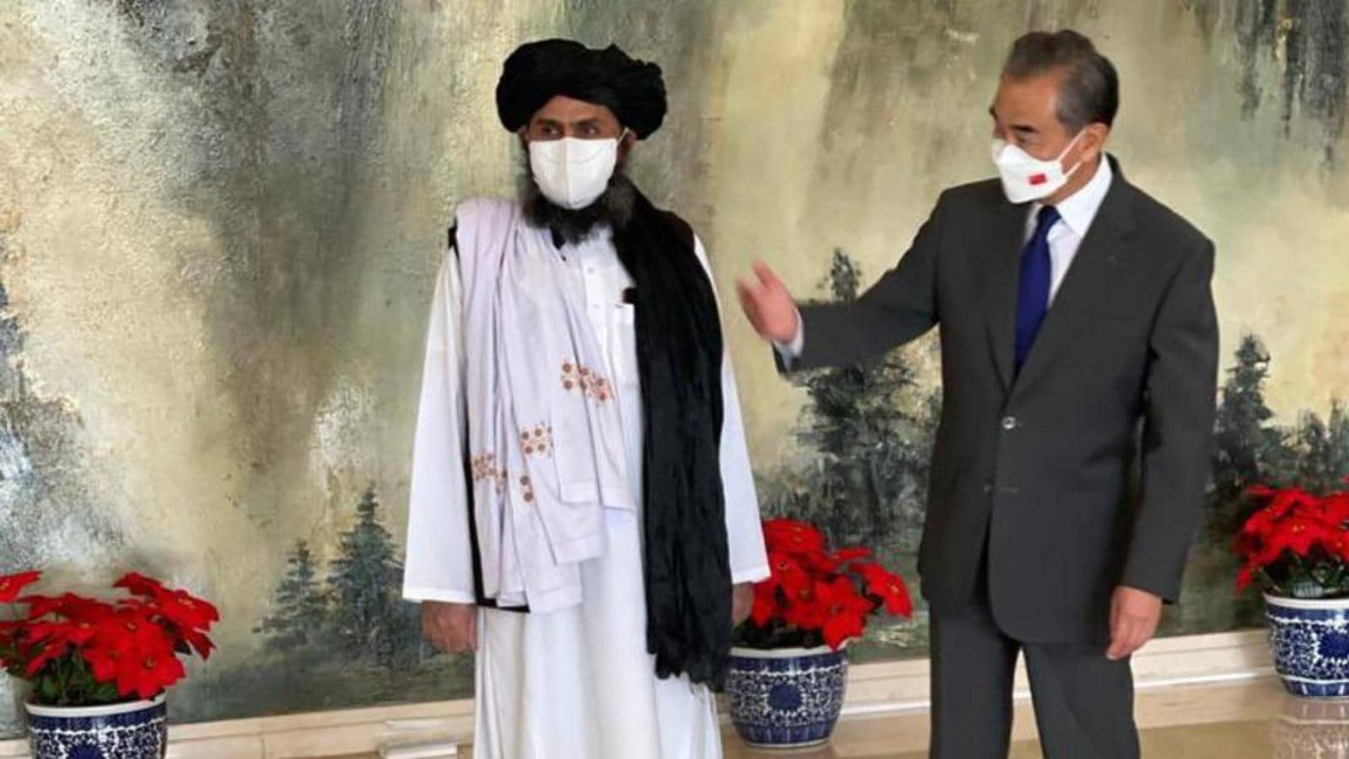Opportunistic pivoting
China has come to assume a significant role in the follow-up to the Taliban’s resurgence in Afghanistan, securing its own strategic and economic interests

China has been evincing extraordinary interest in the rapidly changing developments following the Taliban's conquest of major territories in Afghanistan. An all-weather ally of Pakistan, China has been hand in glove with Pakistan and its intelligence unit, the ISI, in guiding the Taliban on its military advances to defeat the Afghan security forces. China is also believed to be in close touch with the Pakistan-based terror groups including Jaish-e-Mohammad (JeM) and Lashkar-e-Taiba (LeT), who are strongly suspected to have played a decisive role in participating in combat operations, fighting alongside the Taliban. The experts safely assume that China's tacit endorsement has always been there for such misadventures. Here, it might also be pertinent to point out that China has all along opposed the various UN resolutions and pleas by several global powers to designate the JeM as a global terrorist organization. By implication, therefore, it can be said that China has been supportive of terror groups patronized by Pakistan for cross-border terrorism, targeting India in particular.
It is equally imperative to highlight the facts that a group of top Taliban leadership had visited China before the capture of power in Afghanistan, and they were hosted by none other than China's Foreign Minister Wang Yi. Security analysts, in the meantime, assess that the meeting preceding the Taliban victory must have been used to discuss a concrete roadmap for the Taliban and the Chinese political leadership must have given tips as to how to counter the US and Indian moves to deal with the happenings after the takeover. It would also be pertinent to mention here that China has always been wary about the role of its own separatist group, the Uighurs, whom it always labels as terrorists, keeping them under ruthless surveillance like the Tibetan. The Uighurs are Muslims but the Chinese oppressions have never been criticized by Pakistan due to the warm Sino-Pakistan relationship.
Above factors apart, China is keeping a hawkish eye on the mineral resources in Afghanistan, especially on lithium and copper. Also, China wants to ensure the security of 60,000 Chinese present in Pakistan for the project linked to the China-Pakistan Economic Corridor (CPEC). Only last month, nine Chinese engineers were killed and, as early as August 13, the port city of Karachi witnessed a terror attack injuring several Chinese engineers. In the light of the resurgence of the Taliban, China would like to appropriate the Taliban and its Pakistan-based affiliates to check these terror groups targeting the Chinese technical personnel. In sum, China wants to leverage its stranglehold over the Taliban leadership and control Tehreek-e-Taliban Pakistan (TTP) to remain a prime mover in the Afghanistan scheme of things.
Meanwhile, there is no let-up in the ongoing Chinese criticism of the US for being the major perpetrator for the Afghan crisis. China has been pressing for US exit from Afghanistan only after the war-ravaged Afghanistan saw a reconstruction undertaken by the departing US forces. This anti-US tirade apart, China continues its diplomatic mission in Kabul and is regularly meeting the Taliban and Pakistan's JeM operational commanders to wrest complete support of the Taliban in order to forge a stronger relationship for geopolitical and security reasons.
Against this backdrop, Chinese investment, in a big way, maybe afoot for a firm footing on the Afghan soil for future operations. Here, Pakistan is on board with China in the latter's planning and execution. Such developments are apparently a clear indication of a China-Pakistan gang-up to try and marginalize Indian plans to make its presence felt in Afghanistan. Joint efforts by China and Pakistan in this regard seem more pronounced in view of part of northeastern Afghanistan (Panjshir Valley) which has rebelled against the Taliban and poses a new threat to the Taliban military as the late Ahmed Shah Massoud continues to inspire the Tajik-led forces to defy the Taliban. China will try its best to capitalize maximum by further befriending the 'victorious' Taliban as things are racing up rather speedily, to put a so-called 'government' in place and start functioning from the word 'go'.
Along with its ambitions to stay afloat in Afghanistan to express solidarity with Taliban, China will also play a positive role in helping the country in capacity building, peace, reconstruction and improvement of peoples' livelihoods, as claimed by its political and diplomatic leadership. They further claim that China's position on the Afghan issue is consistent and clear cut. The Chinese are expecting that Afghanistan could form an inclusive and broad-based government, adopting a foreign and domestic policy that is prudent and moderate so as to echo and meet the aspiration and shared will of the international community and its own people. Independent analysts, however, feel that such claims on part of China are mere rhetoric to keep the Taliban and Pakistan in good humour. In reality, Chinese plans are unpredictable and diabolical.
The writer is a retired IPS officer, a security analyst and a former National Security Advisor to the PM of Mauritius. Views expressed are personal



